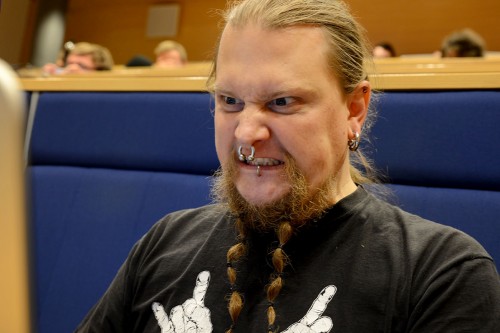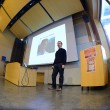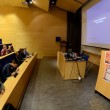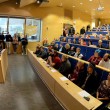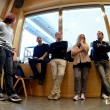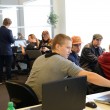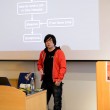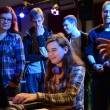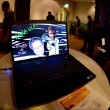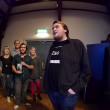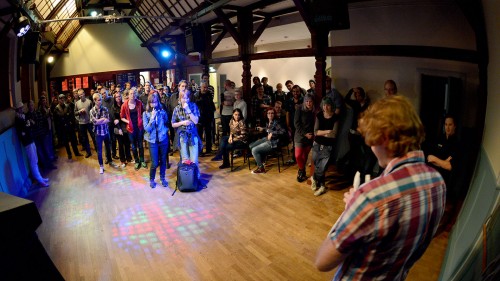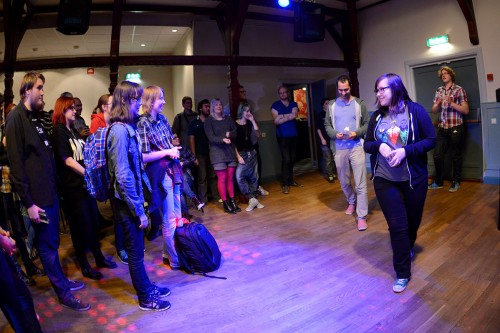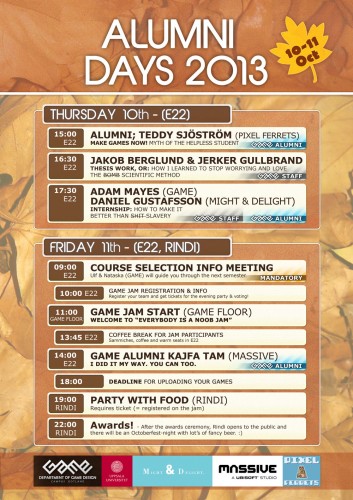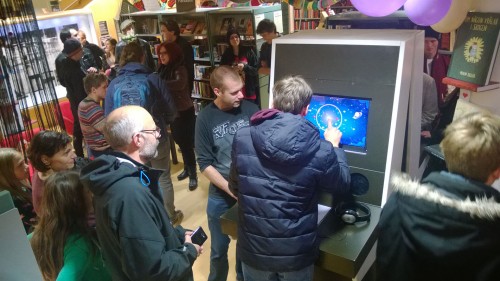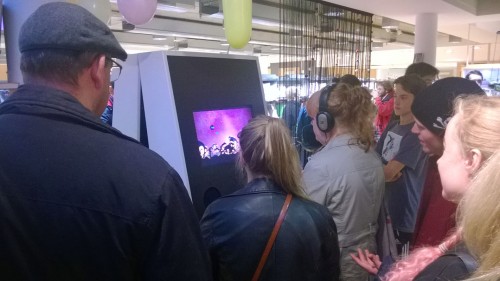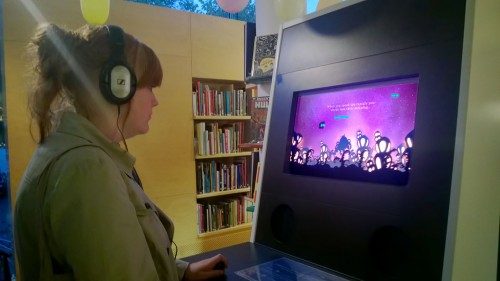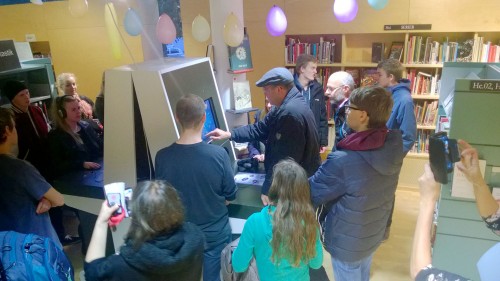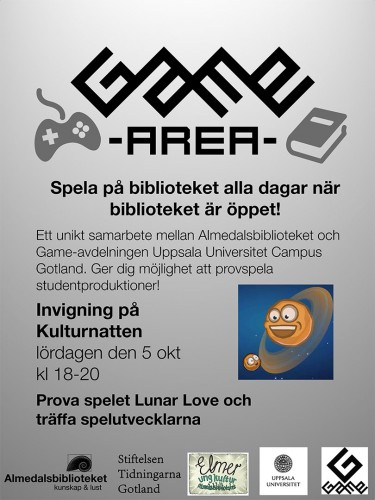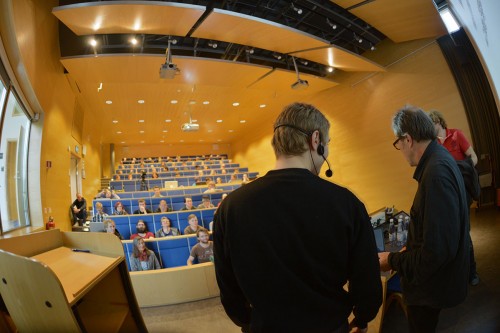
We moved the Alumni Days to much earlier in the semester, from its traditional spot close to christmas. There was two reasons for this:
First, we got a great opportunity to inform and inspire our third year students about their thesis work and internships that’s coming up in the spring semester. By inviting GAME-alumni to share their experiences and tips we hope to provide lots of insight while there’s still time for our students to act on it.
Second, it allows us to show off in front of the new first year students. Introducing them to people who’s been where they are, and made something of themselves in this industry. Hopefully that was inspirational.
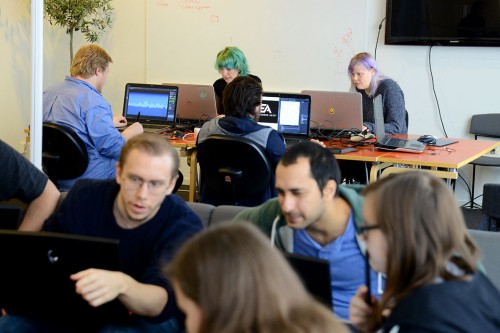
Also – we get a new Jam out of it. 🙂 “Everybody is a Noob Jam” saw seasoned industry veterans, six week old freshmen, experienced students and our own staff all sit down to hack games together. Everyone was forced to use a new tool to even the playing field, and the jam last a single working day – ensuring maximum participation.
Despite having only six hours and being interrupted for lectures, all registered groups delivered playable games – some even including insane levels of polish and details:

All games were available to play and vote on during the alumni party, which also acted as the awards ceremony:
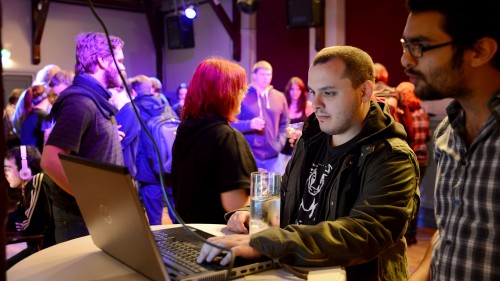
You can browse screencaps from the games here. Thanks to Kajfa, Teddy, Daniel and Jerker for taking the time and helping us out with the event!

